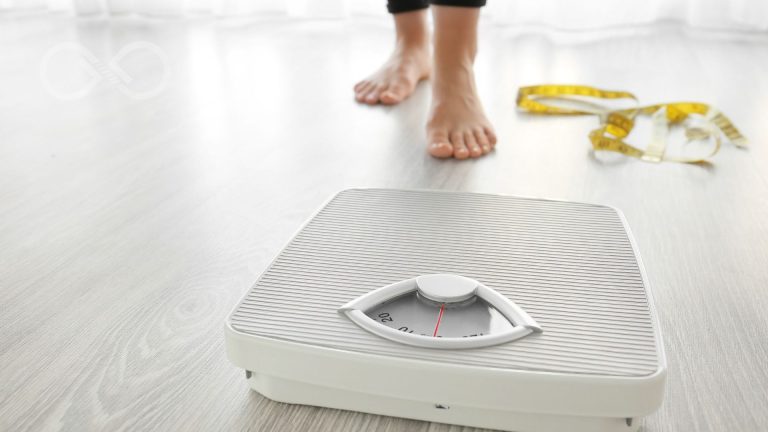Inflammation is a natural response by your body to protect itself from harm, but chronic inflammation can lead to a range of health issues, including fatigue, pain, and even chronic diseases. Fortunately, there are simple, natural ways to reduce inflammation and feel your best. From anti-inflammatory teas to Gua Sha and self-care, this guide covers it all.
Anti-Inflammatory Teas
Drinking the right teas can soothe inflammation naturally and boost your overall wellness. Here are some of the best options:
- Turmeric Tea: Packed with curcumin, a powerful anti-inflammatory compound. For better absorption, pair it with a pinch of black pepper.
- Ginger Tea: Known to reduce inflammation and soothe the digestive system.
- Green Tea: Rich in antioxidants like EGCG, which combat oxidative stress and inflammation.
- Chamomile Tea: A calming tea that reduces stress-induced inflammation.
- Peppermint Tea: Great for relieving inflammation, particularly in the digestive tract.
- Rooibos Tea: Contains flavonoids that fight oxidative stress and inflammation.
Tip: Sip on these teas daily for maximum benefits.
Foods to Fight Inflammation
Your diet plays a huge role in managing inflammation. Incorporate these anti-inflammatory foods into your meals:
Fruits
- Berries (blueberries, raspberries, strawberries)
- Oranges
- Cherries
Vegetables
- Leafy greens like spinach and kale
- Broccoli
- Brussels sprouts
Healthy Fats
- Avocados
- Nuts (especially walnuts)
- Seeds (flaxseeds, chia seeds)
- Olive oil
Spices
- Turmeric
- Ginger
- Cinnamon
- Cayenne pepper
Whole Grains
- Brown rice
- Quinoa
- Oats
Fatty Fish
- Salmon
- Mackerel
- Sardines
Probiotic-Rich Foods
- Yogurt
- Kefir
- Sauerkraut
- Kimchi
Foods to Avoid
- Refined carbs (white bread, pastries)
- Processed and fried foods
- Sugary snacks and drinks
- Excess red meat and processed meats
- Alcohol (in excess)
Gua Sha for Inflammation
Gua Sha is an ancient Chinese therapy that involves scraping the skin with a smooth-edged tool to increase blood flow and reduce inflammation. Here’s how to use it effectively:
- Prepare the Area: Apply a natural oil like rosehip, jojoba, or coconut oil to the skin.
- Use the Tool: Gently scrape the skin in upward strokes using a Gua Sha tool.
- Focus on Tense Areas: Work on inflamed or tense areas such as the neck, shoulders, or jaw.
- Daily Practice: Use Gua Sha for 3–5 minutes daily for best results.
Bonus: Gua Sha can also help reduce facial puffiness and promote relaxation.
Other Self-Care Practices for Inflammation
In addition to teas and foods, these self-care practices can help reduce inflammation and improve your overall well-being:
Stress Reduction
- Meditation: Practice mindfulness or guided meditation for 10–20 minutes daily.
- Yoga or Stretching: Gentle movement reduces stress and tension.
- Deep Breathing: Incorporate deep breathing exercises to calm your nervous system.
Hydration
Drink plenty of water throughout the day to flush out toxins and support your body’s natural detox processes.
Regular Movement
Engage in gentle exercises such as walking, swimming, or yoga to improve circulation and reduce inflammation.
Massage Therapy
Massage helps relieve muscle tension and inflammation, especially when combined with essential oils like eucalyptus or lavender.
Epsom Salt Baths
Magnesium in Epsom salts relaxes muscles and reduces inflammation. Add a cup to a warm bath and soak for 15–20 minutes.
Sleep
Prioritize quality sleep to allow your body to repair itself. Aim for 7–9 hours of uninterrupted sleep each night.
Supplements for Inflammation
Certain supplements can support your body’s fight against inflammation:
- Omega-3 Fatty Acids: Found in fish oil or algae-based supplements.
- Curcumin: Extracted from turmeric; choose a high-quality supplement with black pepper for better absorption.
- Vitamin D: Low levels are linked to higher inflammation.
- Magnesium: Reduces muscle and systemic inflammation.
- Probiotics: Supports gut health, which plays a key role in inflammation control.
Journaling for Stress Relief
Tracking your habits and how your body feels can be incredibly empowering. Start a journal to:
- Log how certain foods make you feel.
- Track your progress with teas, Gua Sha, and self-care practices.
- Write down what you’re grateful for to lower stress-induced inflammation.
Reducing inflammation is about creating a lifestyle that supports your body’s natural ability to heal. By incorporating anti-inflammatory teas, foods, Gua Sha, and mindful self-care practices, you can take control of your health and feel your best every day. Try these tips and notice the difference they make in your overall well-being!




